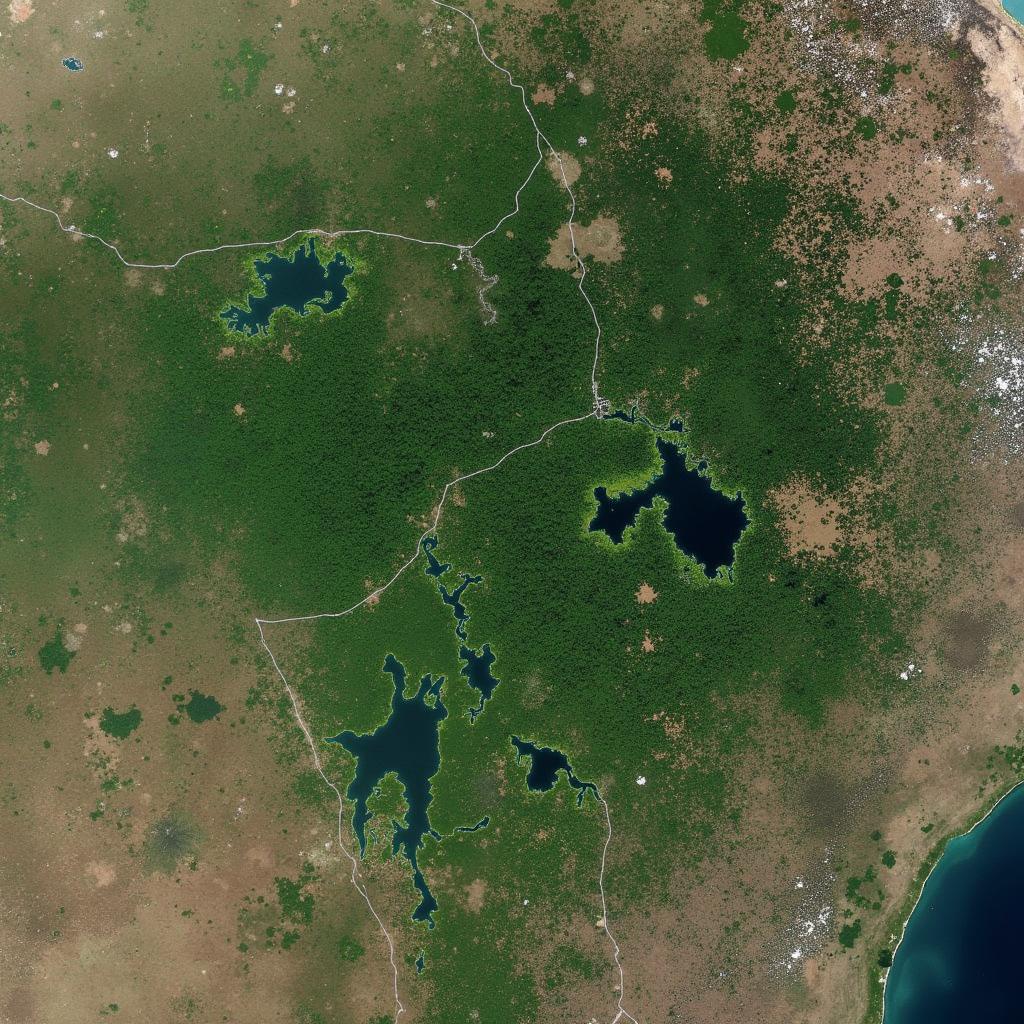African Elephant Habitat Loss: A Growing Threat
African Elephant Habitat Loss is a critical conservation concern, driving these majestic creatures towards an uncertain future. The shrinking space available for elephants to roam freely has devastating consequences, impacting their survival and the delicate balance of African ecosystems.
The Impact of Deforestation on African Elephant Populations
Deforestation is a primary driver of African elephant habitat loss. As human populations grow and the demand for land increases, forests are cleared for agriculture, logging, and infrastructure development. This reduces the elephants’ available space, forcing them into smaller areas and increasing competition for resources. This competition can lead to increased conflict with humans, as elephants raid crops in search of food.  African Elephant Habitat Fragmented by Human Activities
African Elephant Habitat Fragmented by Human Activities
What is the main cause of African elephant habitat loss? Primarily, it’s the conversion of their natural habitats to human land uses. Expanding agriculture, resource extraction, and infrastructure development carve into elephant territories.
How does Habitat Fragmentation Affect Elephants?
Habitat fragmentation, driven by human activities, isolates elephant populations. This isolation restricts gene flow, making them more vulnerable to diseases and other threats. Furthermore, fragmented habitats often lack the diverse resources elephants need, compromising their nutritional intake and overall health. African elephant habitat loss facts show a direct correlation between shrinking habitats and declining elephant populations. These facts paint a grim picture of the challenges faced by these gentle giants. Want to learn more fascinating details about how elephants have adapted for survival in these challenging environments? Explore our article on African elephant adaptations for survival.
The Role of Human-Wildlife Conflict
As elephants lose their natural habitat, they are increasingly forced into closer proximity with humans. This proximity leads to human-wildlife conflict, as elephants raid crops and damage property in search of food and water. This conflict often results in the death of both elephants and humans. Understanding this complex issue is crucial for developing effective conservation strategies.
What are the Solutions to Human-Elephant Conflict?
Addressing human-wildlife conflict requires a multifaceted approach. Strategies include creating buffer zones between human settlements and elephant habitats, implementing community-based conservation programs, and educating local communities about elephant behavior and how to coexist peacefully. Another interesting aspect to consider is the presence of other large mammals in the African ecosystem. Check out our article about the African bison like animal for a broader understanding of the fauna sharing these environments.
Conservation Efforts and Future Directions
Numerous organizations and governments are working to protect African elephants and their habitats. These efforts include establishing protected areas, combating poaching, and promoting sustainable land management practices. However, continued support and collaborative action are essential to ensure the long-term survival of these magnificent animals. For a fun activity related to these gentle giants, consider downloading our African elephant coloring page.
Dr. Aminata Sow, a renowned wildlife biologist specializing in African elephants, states, “Protecting elephant habitats is not just about saving elephants; it’s about preserving entire ecosystems that provide vital services for both wildlife and humans.”
Another expert, Dr. Joseph N’gombe, a conservationist with decades of experience in East Africa, emphasizes, “Community involvement is crucial for the success of any conservation initiative. Empowering local communities to protect their natural resources is key to ensuring long-term sustainability.”
Conclusion
African elephant habitat loss is a complex issue with far-reaching consequences. By understanding the factors driving habitat loss and supporting effective conservation efforts, we can contribute to securing a future where African elephants continue to thrive in their natural environment. We must act now to protect these magnificent creatures and the vital ecosystems they inhabit.
FAQ
- What are the primary threats to African elephant habitats?
- How does climate change affect elephant habitats?
- What are the economic benefits of elephant conservation?
- How can individuals contribute to elephant conservation efforts?
- What are some successful examples of elephant conservation projects?
- What are the main differences between African forest elephant predators and those of savanna elephants?
- How can tourism contribute to elephant conservation?
Do you have any other questions?
Here are some related articles that might interest you:
- African elephant habitat loss facts
- African elephant adaptations for survival
- African forest elephant predators
For further assistance, please contact us:
Phone: +255768904061
Email: kaka.mag@gmail.com
Address: Mbarali DC Mawindi, Kangaga, Tanzania.
We have a 24/7 customer service team.

